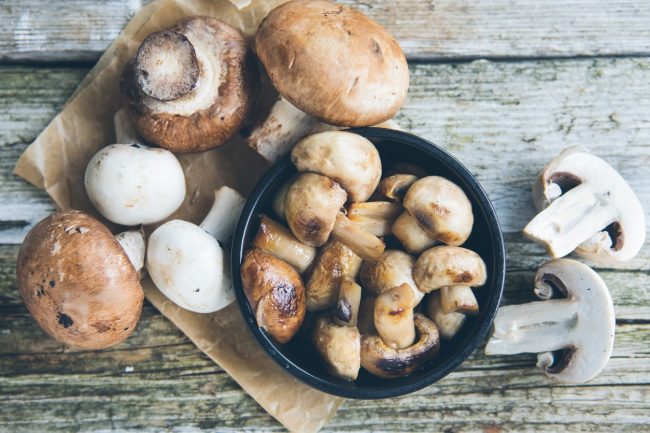There’s a fungus among us. Mushrooms are booming, as more and more people search for how to incorporate different types of mushrooms into their food and supplement routine. Mushrooms are known for containing a natural level of vitamin D, as well as immune-boosting beta glucans. But other health benefits of mushrooms depend on which variety you choose. So, how do you know which one is right for you? Follow this guide.
What to Look for in a Mushroom
A DNA match
A recent published study from the United States Pharmacopeia Convention and the University of Macau showed that 74% of the reishi products they collected and tested in the United States were NOT actually reishi. This study was shocking, and it showed that customers needed to be on the lookout for how to identify a quality mushroom product over an adulterated mushroom that may offer no benefits at all.
The best way to identify a mushroom is by DNA verification. While expensive, this guarantees that you’re getting the coveted reishi (Ganoderma lucidum) or ling zhi reishi used traditionally in China. Otherwise, you may be getting Ganoderma resinaceum, which while sharing 97% DNA with lucidum, is not the same thing.
What’s the big deal with just a 3% DNA gap? The difference can be significant. Consider that humans and chimpanzees share a 99% DNA match, yet the two species have striking distinctions between them.
To solve for this identity crisis – and avoid counterfeit or adulterated mushrooms – look for an Identity Assured mushroom that has been DNA verified.
A peak harvest
Mushrooms are traditionally grown on wood, but the need for large amounts of mushrooms means most U.S. growers use rice as a base for growing the fungi. Waiting to harvest the mushroom at just the right time is crucial to making sure that the mushroom has consumed and transitioned the substrate (growing material). If picked too soon, you could end up with a little mushroom and a lot of rice!
4 Types of Mushrooms to Add to Your Routine
Reishi
Mushrooms have been used traditionally for thousands of years for a myriad of health supportive benefits. Chinese history has shown the reishi mushroom being so valued that it was hoarded exclusively for royalty. Reishi was coveted because of its reputation for being an effective restorative food that could support vitality.*
Lion’s mane
Known for cognitive support and helping with mental clarity, the lion’s mane mushroom has become a must-have supplement.*
Maitake
Maitake means “dancing mushroom” in Japanese. This variety is traditionally known as an adaptogen – a substance that helps your body adapt to different stressors.
Cordyceps
Cordyceps mushroom gained fame with the 1993 Chinese Olympic running team, who swore by this specific variety of fungi. The only problem was the traditionally used Cordyceps sinensis is an extremely expensive and rare variety to harvest. In fact, Cordyceps sinensis is an invasive fungus that assaults a caterpillar’s body to use it as a host to grow the fungus. The alternative that’s most common in the U.S. is Cordyceps militaris, which shares the same bio-active compounds as the sinensis variety.
Mushrooms are an exciting addition to any healthy lifestyle. Just be sure to dive in cautiously and find the mushroom that’s not only right for you, but is also DNA verified!
*These statements have not been evaluated by the Food and Drug Administration. These products are not intended to diagnose, treat, cure or prevent disease.

